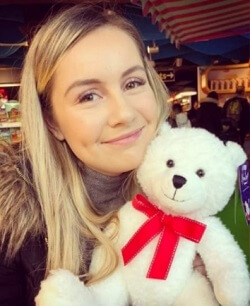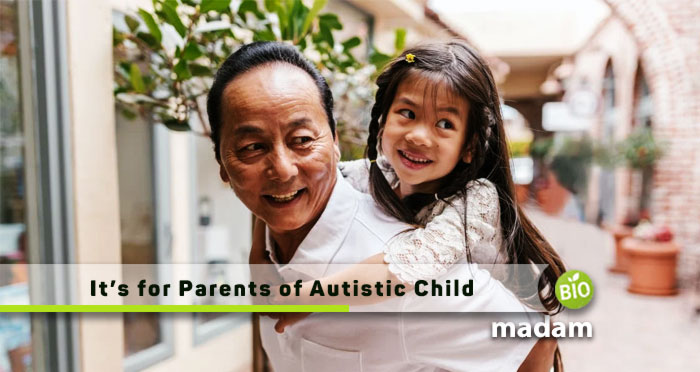Autism spectrum disorder (ASD) is a developmental disability caused by differences in the brain, but its actual causes are still unknown. Signs and symptoms of Autism vary from children to adults, hence from person to person.. The ratio of autism prevalence in children is increasing day by day. So it is essential for parents to be well aware of the signs of autism to provide better help to their children.
People with autism do not have specific looks and features, but they may have other communication, interaction, and learning from most other people. The learning, thinking, and problem-solving abilities of people with Autism Spectrum Disorder can range from gifted to severely challenged. More or fewer people with ASD need a great deal of assistance in their everyday lives; others require less.
The onset age of ASD is 2-3 years, and it lasts throughout the life of an autistic person. There is no cure for autism, although symptoms of autism may improve with time and therapy.
10 Signs of Autism
Studies have indicated that these signs of autism are prominent before the child’s first birthday. Early diagnosis helps parents deal with the developmental challenges of their autistic children in a better way.
Signs of autism in infants: These children do not respond to their names by 12 months of age
Signs of autism 10 months: They do not show interest in an object by 14 months.
Here is an entirely comprehensive guide to the signs of autism.
- They do not interact with others and do not play pretend games
- Usually, avoid eye contact
- One of the signs of autism in children aged 10 is they avoid social contact and want to be alone
- They have impaired language skills and delayed speech
- Echolalia, repeat some specific words over and over
- Overwhelmed by minor changes
- Obsessive interests with compulsive actions
- Flap their hands and head, and they react unusually to bright light, sound, and smell
Social Issues Related to ASD
Lack of social skills is the most common symptom and sign of autism in all types of ASD. Here is the list of social issues that cause severe problems in the everyday life of people with autism.
- Does not answer or respond when their name is called by 12 months of age.
- Avoids eye contact with others.
- They have a preference to play alone instead of playing with other kids.
- Does not join interests with others.
- Only focus on their particular goal and interact to achieve the desired goal.
- Such people have flat or inappropriate facial expressions.
- Does not understand how to develop a friendship
- Avoids or resist contact, neither physical nor communication; they are susceptible to being touched or cuddled
- They are not comforted easily by others during distress
- They have difficulty understanding other people’s feelings.
Communication Skills

It is estimated that 40% of children with autism do not talk at all. 25%-30% of Autistic Children may speak some words at 12 to 18 months of age. Others might speak in their late childhood.
Examples of communication issues are:
- Delayed and slowed down speech and language skills
- Repetition of words or phrases over and over (echolalia)
- Opposites pronouns (e.g., says “you” instead of “I”)
- Gives unrelated answers to questions and keeps on repeating the question again and again
- Does not point or respond to pointing, e.g., airplane or car
- Use little or no gestures (e.g., do not wave goodbye or clap)
- Talks in a flat, monotone, robot-like, or sing-song voice
- Does not play pretend games (e.g., does not pretend to “feed” a doll)
- Does not speak like little adults
Parents can help their children talk by following the guidelines of the speech therapist.
Uncommon Interests and Behaviors
Many people with ASD have foreign and strange interests or behaviors.
Examples of unusual interests and behaviors related to ASD:
- Lines up toys, cards, or other objects
- Plays with toys the same way every time, like turning a light on and off
- Likes parts of objects (e.g., wheels of a toy car)
- Keep their things very organized
- Minor changes make them disturbed
- Obsessive interests in eating, playing, and moving around
- They follow certain routines
- Spend a lot of time flapping their hands, rocking body, or spinning themselves in circles
Other Symptoms and Signs of Autism
Some people with ASD have some other symptoms. These might include:
- Hyperactivity (very active)
- Impulsivity (acting without thinking)
- Short attention span
- Aggression
- Temper tantrums and abnormal moods
- Unusual eating and odd sleeping habits like might eat non-food items
- Unusual mood or emotional reactions, over or under-react to pain
- Lack of fear or more fear than expected leads to self-injury
- Unusual responses to the way things sound, smell, taste, look or feel
Conclusion
One can encounter a large diversity when getting to know about the signs and symptoms of Autism. Parents should be well aware of what their children are going through and if they find relevant symptoms, consult a good psychologist.

Hi, my name is Eva. I am currently practicing as a clinical social worker, that being my childhood desire. As a licensed therapist holding MPhil in Clinical Psychology, I am now on biomadam to provide the natives with the best family advice! Do you have any questions? See you in the comment section.

